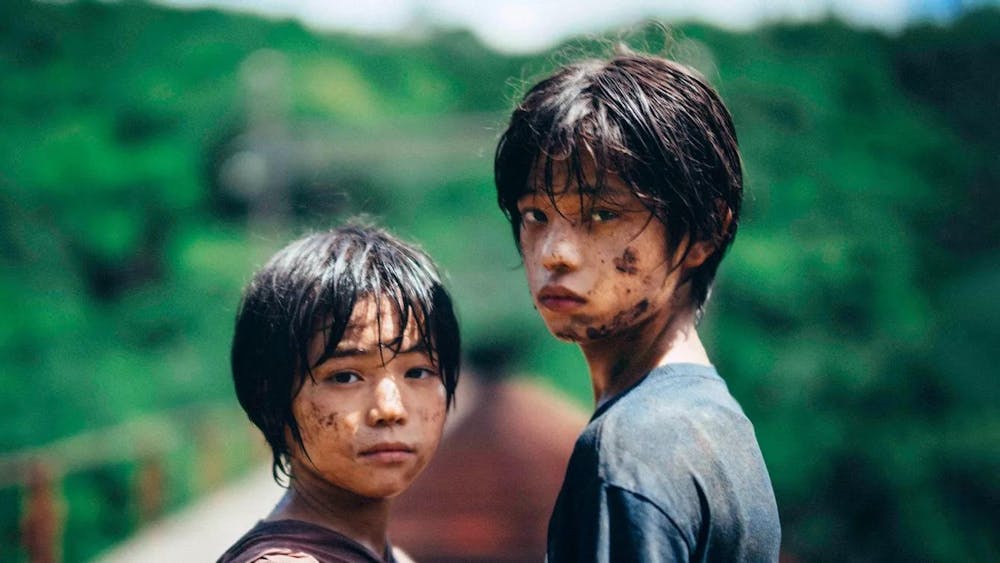To many, the mark of a great film is its originality. And subsequently, to those, the mark of a great filmmaker would be their ability to create consistently original films. But that worldview suffers for its shortsightedness. In the case of many great filmmakers, it is the perpetual return to the same basket of ideas and themes from different angles that contributes to their distinction. This is perhaps most true for filmmaker Hirokazu Kore-eda.
One of the greatest cinematic humanists, it would be easy to say that Hirokazu Kore-eda has been making the same film since his debut feature “Maborosi” in 1995. Kore-eda’s “Nobody Knows” follows a boy who has to care for his younger siblings after their mother leaves them. “Still Walking” tells a multigenerational tale about a yearly ritual commemorating a death in the family. And “Shoplifters” chronicles the life of a makeshift family of outcasts centered around acts of petty theft. In these three films — and others — Kore-eda finds new ways to methodically meditate on what it means to be a family — telling these stories through the lens of the children who struggle to conceptualize the turmoil of a parental figure and in turn fall victim to it.
While these classic traits of a Kore-eda film are readily apparent in his newest movie “Monster,” the way he plays with the narrative form adds further depth to the motifs he has been playing with for nearly 30 years. Instead of focusing on the family unit from a completely interior perspective, the film weaves together varying subjectivities from three distinctive distances — the completely detached, the closer yet misinformed and the personal.
“Monster” starts from a very simple place — Saori (Sakura Andō) is concerned that her son Minato (Sōya Kurokawa) is being physically abused by his teacher Hori (Eita Nagayama). Minato is constantly forlorn and his mother can’t get a firm answer why. When she goes to the school to demand accountability, she is met with nothing but apathy. Things at first glance seem very cut and dry, with a clear villain. But instead of looking at this story entirely through Saori’s eyes, the film tells the same sequences of events through Hori’s and finally Minato’s. As the film progressively gets closer to the subject it depicts, more information is slowly revealed until it unveils its devastatingly heartbreaking core.
It is on this emotional level that the film excels most. The careful unraveling of information is so discreetly done that you don’t even know when the movie will hit you on such a visceral level. But once it does, the film’s brilliance is fully cemented. The movie is structured much like a mystery, with red herrings and unreliable narrators obscuring the true nature of the issue at hand. In this aspect, the film is deeply fascinating and marvelously crafted, keeping the viewer perpetually hooked on the narrative’s twists and turns. But as soon as the question of what really happened at the school gets more or less solved, the film reaches new heights instead of fizzling out to a disappointing conclusion.
At the end of the day, the story boils down to the relationship between Minato and Yori (Hinata Hiiragi), his friend at school who becomes more integral to the true nature of "Monster" as it progresses. It becomes clear that at the center of the film's conflict is a complete misunderstanding of the two characters by everyone else. And once the two of them are shown together on their own terms at the film’s end, Kore-eda crafts something special and beautifully honest that firmly situates “Monster” as the most emotionally moving work of the year.
“Monster” proves that you don’t need to reinvent the wheel in order to make something special. Kore-eda is a contemporary cinematic master who continues to outdo himself just by fine-tuning his craft, finding the best ways to ruminate on profound emotional questions. “Monster” is a peak in one of the most consistently great filmographies and is worth the deepest consideration from as many as can possibly watch it.

Finn Kirkpatrick was the senior editor of multimedia of the Brown Daily Herald's 134th editorial board. He is a junior from Los Angeles, California studying Comparative Literature and East Asian Studies. He was previously an arts and culture editor and has a passion for Tetris and Mario Kart.





